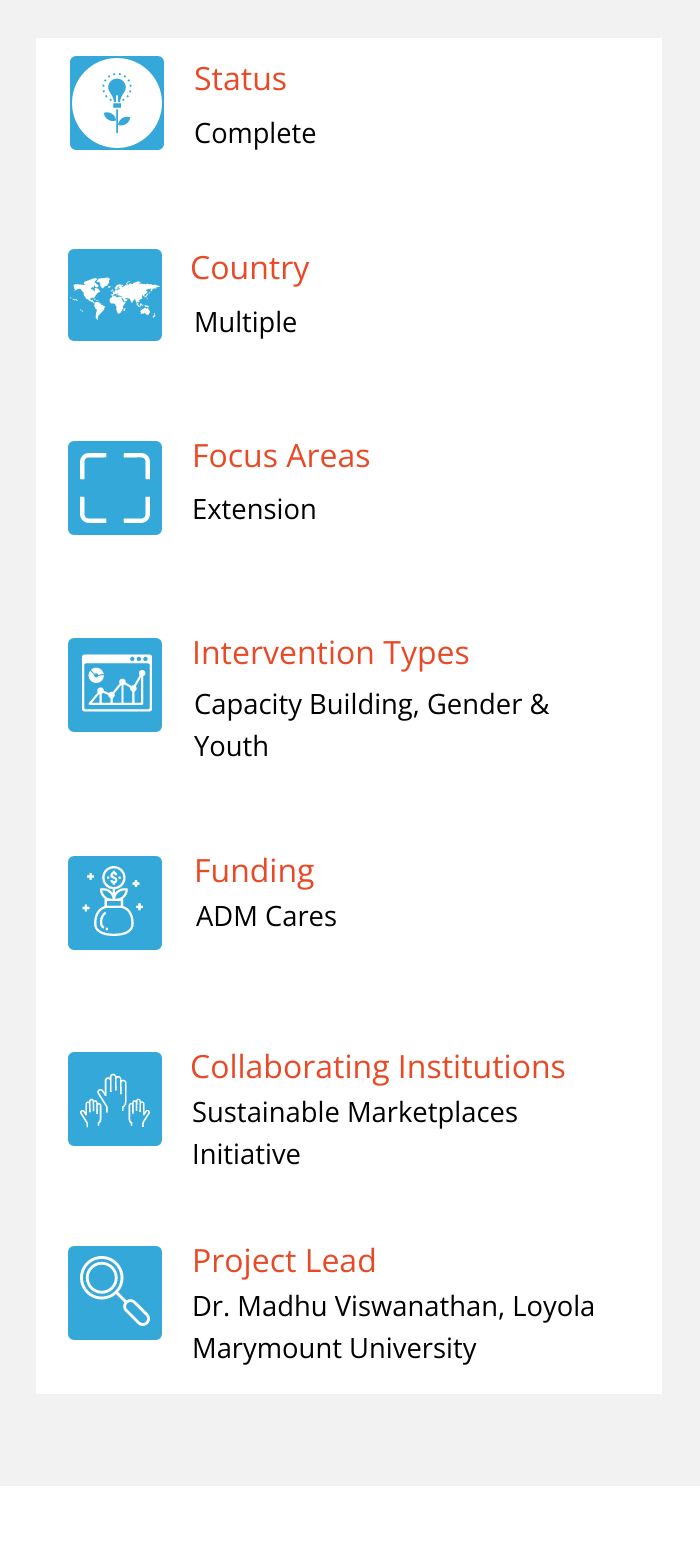Social Sustainability Literacy for Women Farmers
Background
The Subsistence Marketplaces Initiative at the University of Illinois at Urbana-Champaign Gies College of Business has pioneered the area of inquiry and practice entitled subsistence marketplaces over the last two decades. This initiative takes a bottom-up approach to the study of the intersection of low-income individuals and marketplaces – developing unique synergies between research, teaching, and social initiatives with a primary purpose of empowering entrepreneurs to succeed in these most difficult arenas. ADMI has been in close partnership with the Subsistence Marketplaces Initiative since the institute’s creation in 2011. Over the past 10 years, ADMI has funded study abroad opportunities for University of Illinois students and new Sustainable Marketplaces programs.

Project Information
The project will understand, design, and deliver a social sustainability literacy program targeting women farmers. Focusing on women farmers to examine social sustainability is particularly important, given the barriers they overcome and the variety of roles they play in and outside the home. The project uses a unique holistic approach to social sustainability by expanding the scope of the agricultural value chain to include issues that are particularly of interest to women farmers such as the marketplace and the household.
This project will build upon previous Marketplace Literacy programs funded by ADMI, which have emphasized environmental issues, such as climate change, and the impact on economic sustainability for farmers.
Working in at least three countries spanning the areas of Latin America, Africa, and Asia, the project will:
- Conduct and analyze 20 in-depth interviews in each country of focus.
- Deliver the program to 1,500 women farmers, approximately 500 in each chosen country.
- Develop a manual from experiences in three countries and disseminate learning to enable others to use the program.
Project Outcomes
The project was implemented in Uganda and Tanzania with delays due to the COVID-19 pandemic.
Researchers designed social sustainability literacy programs, including virtual content. The virtual content was vital for implementation during pandemic conditions.
The program reached 597 participants in Uganda, of whom 280 were women. In Tanzania, the program reached 360 participants, including 260 women.



